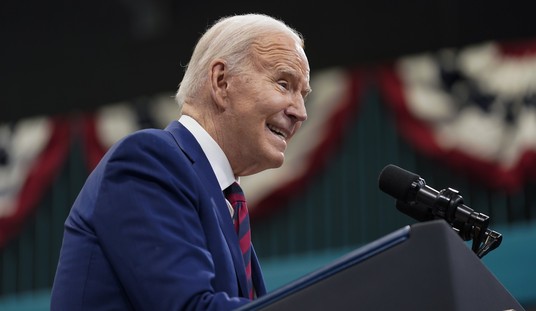I don't claim to be an expert on monetary policy or international finance, but I've been astonished by the degree of disrespect expressed here and abroad to the latest economic policies of President Barack Obama and Federal Reserve Chairman Ben Bernanke.
The policies in question are the Obama administration's attempts to convince other countries (especially China) to strengthen their currencies and the Fed's renewed bout of quantitative easing (generally referred to as QE2), which involves buying $600 billion in Treasury bonds by next June.
Both are widely interpreted as attempts to lower the value of the dollar to make American exports cheaper and to reduce the huge export earnings of countries as varied as China, Germany and Brazil.
Not surprisingly, Chinese and German leaders are squawking loudly, complaining that the United States is attempting to use their strength to compensate for our own weakness. Brazil's finance minister, Guido Mantega, minced no words when he called the Fed's action the beginning of "currency wars."
Obama's efforts to get agreement at the G-20 conference were not successful. Seldom if ever has an American leader been pummeled with such criticism at an international economic conference.
During the 2008 campaign, we were told that foreigners would once again respect America if voters elected Obama. That wasn't apparent in Korea.
In Washington, too, there have been complaints coming from a surprising source. Shortly after Bernanke announced the Fed's QE2 policy, Federal Reserve Board member Kevin Warsh wrote an article for The Wall Street Journal saying that there won't be much easing and that the Fed can't compensate for bad fiscal policy. "The Federal Reserve is not a workshop for broken fiscal, trade or regulatory policies," he wrote.
Recommended
Warsh has been regarded, by me and others more expert, as a solid Bernanke ally on the Fed, one given to justifying the chairman's policies to the outside world, and he voted with Bernanke on QE2. But in the Journal, he wrote, "I consider the (Fed's) action as necessarily limited, circumscribed and subject to regular review." Translation: Ben, you haven't got my vote for long.
Similarly, many were surprised to see World Bank President Robert Zoellick write in the Financial Times Nov. 9 calling attention to the risk of inflation. "Markets are using gold as an alternative monetary asset today," he wrote.
He urged economic policymakers to consider "employing gold as a reference point of market expectations about inflation, deflation and future currency values." Gold prices, as viewers of cable news ads know, have been rising to near-record levels, so inflation is what Zoellick is worried about.
Zoellick is no fringe character. He worked for James Baker at Treasury and State and was George W. Bush's special trade representative and deputy secretary of state.
This week, a group of predominantly Republican economists, financers and writers wrote an open letter to Bernanke calling for ending QE2. "The planned asset purchases risk currency debasement and inflation, and we do not think they will achieve the Fed's objective of promoting employment." Searing words. It's highly unusual for such a group to put out such stinging criticism of a Fed chairman's policy.
In announcing QE2, Bernanke stressed the Fed's statutory obligation to hold down unemployment. That was inserted into the Fed's charge by Democrats in the 1970s but has clearly been considered of secondary importance by Chairmen Paul Volcker and Alan Greenspan to the Fed's primary duty to hold down inflation.
I suspect that Bernanke is less focused on reducing unemployment than he is on preventing deflation. His scholarly work has concentrated on the disastrous deflation that struck America and much of the world in the 1930s. As a Fed board member in 2003, he delivered a widely noticed speech warning of deflation and indicating how the Fed could fight it.
He once wrote, presumably whimsically, that if deflation was a great enough threat, the Fed chairman could go up in a helicopter and throw money down into the streets. But now it looks like a lot of people want to ground Helicopter Ben.
QE2 may have seemed a good match for the Obama administration policy of strengthening China's currency and in the process weakening the dollar. But it seems a poor match with the incoming Congress -- and with the heads of many of the world's other leading economic powers. Can the Fed persist in a policy that has stirred such scathing criticism?
























Join the conversation as a VIP Member